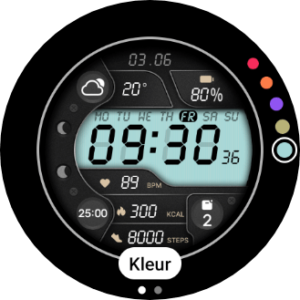U novoj presudi, sud je donio odluku u korist Applea u antitrustovskom sudskom sporu koji je pokrenuo AliveCor. Ova medicinska tehnološka tvrtka tvrdila je da je Apple namjerno mijenjao algoritam mjerenja otkucaja srca na Apple Watchu kako bi ometao konkurenciju i onemogućio funkcioniranje aplikacije SmartRhythm, koja je radila u kombinaciji s njihovom ECG KardiaBand narukvicom. AliveCor je zahtijevao odštetu i sudsku zapovijed kojom bi se Apple obvezao da podržava stariju, manje točnu tehnologiju mjerenja otkucaja srca. Međutim, sud je prihvatio argumente Applea prema kojima AliveCor nema pravo nametati svoje dizajnerske odluke tvrtki i potvrdio je Appleovu sposobnost za poboljšavanje značajki Apple Watcha. AliveCor je izrazio razočaranje odlukom suda i najavio žalbu.

Background Information
Antitrust lawsuit filed by AliveCor against Apple
In 2021, AliveCor, a medical technology company, filed an antitrust lawsuit against Apple. The lawsuit alleged that Apple engaged in anticompetitive behavior regarding its heart rate technology in the Apple Watch. AliveCor claimed that its „SmartRhythm“ app, which worked with its ECG KardiaBand, was targeted by Apple for App Store rule violations.
Summary judgment in Apple’s favor
Recently, the judge overseeing the case issued a summary judgment in Apple’s favor. The ruling states that Apple was not found to have engaged in anticompetitive behavior. Although the full ruling is currently under seal due to confidentiality requests from both Apple and AliveCor, it is clear that the case did not proceed in AliveCor’s favor.
Claim of App Store rule violations and impact on KardiaBand
AliveCor alleged that Apple violated App Store rules multiple times, specifically targeting its „SmartRhythm“ app. Additionally, AliveCor claimed that a change to the heart rhythm algorithm in watchOS 5 rendered the KardiaBand non-functional. This change impacted the accuracy of the technology and had a negative impact on the availability and functionality of the app for Apple Watch users.
Request for damages and injunction
In response to the alleged rule violations and impact on the KardiaBand, AliveCor sought damages from Apple. Additionally, AliveCor requested an injunction that would require Apple to cease its conduct and continue supporting the older, less accurate heart rate technology that worked with the SmartRhythm app.
Apple’s argument against supporting older heart rate technology
Apple defended itself against AliveCor’s claims by arguing that AliveCor did not have the authority to dictate its design decisions. Apple also contended that supporting the older heart rate technology would require the court to monitor and enforce Apple’s engineering decisions on a daily basis. Ultimately, the court agreed with Apple and issued a summary judgment in its favor.
Statements from Apple and AliveCor
After the court’s decision, Apple released a statement expressing gratitude for the ruling. The statement emphasized Apple’s commitment to innovation and the importance of continuously improving its products and services. AliveCor, on the other hand, expressed disappointment with the court’s decision and announced its plan to appeal the ruling. AliveCor affirmed its dedication to protecting its intellectual property and promoting innovation.
Patent infringement lawsuits against Apple
In addition to the antitrust lawsuit, AliveCor has also filed multiple patent infringement lawsuits against Apple. These lawsuits claim that Apple copied AliveCor’s cardiological detection and analysis technology. It is important to note that these patent infringement lawsuits are separate from the antitrust case and are still ongoing.
The Lawsuit and Summary Judgment
AliveCor’s claim of App Store rule violations
AliveCor alleged that Apple violated App Store rules multiple times, specifically targeting AliveCor’s „SmartRhythm“ app. The company claimed that Apple’s actions limited the availability and functionality of the app for Apple Watch users, thus impacting competition and consumer choice.
Changes to heart rhythm algorithm in watchOS 5
When Apple introduced watchOS 5, it also implemented a new heart rhythm algorithm called the heart rate neural network (HRNN). AliveCor asserted that Apple intentionally changed this algorithm to negatively impact the KardiaBand’s functionality. According to AliveCor, this change rendered the KardiaBand and the SmartRhythm app non-functional, eliminating competition in heart rate analysis.
Request for damages and injunction
AliveCor sought damages from Apple as a result of the alleged rule violations and the impact on the KardiaBand. Additionally, AliveCor requested an injunction that would compel Apple to continue supporting the older heart rate technology, despite Apple’s decision to implement the new heart rate algorithm in watchOS 5. AliveCor aimed to ensure that Apple would not engage in similar conduct in the future.
Apple’s argument against supporting older heart rate technology
Apple defended its position by asserting its right to make design decisions without interference. The company argued that AliveCor’s request to support the older heart rate technology in the Apple Watch would require the court to become intricately involved in Apple’s engineering choices on a continual basis. Apple contended that this would undermine its ability to innovate and improve its products regularly.
Summary judgment in Apple’s favor
The court ultimately sided with Apple and issued a summary judgment in its favor. The ruling confirmed that Apple did not engage in anticompetitive behavior as alleged by AliveCor. The court’s decision underscored Apple’s freedom to improve its products and services, thereby dismissing AliveCor’s claims against the company.

Apple’s Ability to Improve the Apple Watch
Apple’s statement on challenge to improve Apple Watch
Apple responded to the case outcome by releasing a statement emphasizing its commitment to innovating and improving the Apple Watch. The company stated that AliveCor’s lawsuit attempted to undermine Apple’s ability to enhance the capabilities of the Apple Watch, which are essential for users’ health, wellness, and even life-saving features.
Court’s decision confirming Apple’s innovation
The court’s decision in Apple’s favor confirmed the company’s ability to continue innovating the Apple Watch. The ruling recognized that Apple’s improvements were not anticompetitive, but rather aimed at enhancing the product’s important capabilities. The court’s support of Apple’s innovation reinforced its position as a leader in the wearable technology space.
Protection of innovations against meritless claims
Apple expressed its gratitude to the court for carefully considering the case and affirmed its commitment to protecting its innovations from baseless claims. The company remains dedicated to advancing products and services that benefit its customers and will continue to defend against any challenges to its technological advancements.
AliveCor’s Disagreement and Appeal
AliveCor’s statement on court’s decision
Following the court’s decision, AliveCor expressed disappointment with the outcome and disagreement with the dismissal of its anticompetition case. The company disagreed with the court’s assessment and believed that Apple’s actions had hindered competition and restricted consumer choice.
Plan to appeal the decision
AliveCor announced its intention to appeal the court’s decision. Despite the setback, it remains steadfast in its pursuit of justice and the protection of its intellectual property. The appeal process will provide AliveCor with an opportunity to present additional arguments and evidence to support its claims against Apple.
Continued protection of intellectual property
AliveCor underscored its commitment to protecting its intellectual property. The company recognizes the value of its innovative technology and its contributions to the healthcare industry. AliveCor remains determined to defend its intellectual property rights and ensure a fair and competitive marketplace.
Review of ITC and PTAB appeals
AliveCor mentioned ongoing appeals at the International Trade Commission (ITC) and the U.S. Patent Trial and Appeal Board (PTAB). These appeals relate to patent infringement claims against Apple. AliveCor seeks to enforce its patents and hold Apple accountable for alleged infringement. The reviewing process at the Federal Circuit in the Northern District of California will provide further opportunities for the resolution of these patent-related disputes.

Patent Infringement Lawsuits
Separate lawsuits on cardiological detection technology
Apart from the antitrust lawsuit, AliveCor has initiated several patent infringement lawsuits against Apple. These lawsuits assert that Apple copied AliveCor’s cardiological detection and analysis technology, potentially violating AliveCor’s intellectual property rights. These patent disputes represent another legal battle between the two companies, distinct from the antitrust case.
Review at the Federal Circuit in the Northern District of California
The patent infringement lawsuits filed by AliveCor against Apple will undergo review at the Federal Circuit in the Northern District of California. This review process will further examine the merits and validity of AliveCor’s claims and Apple’s defenses. The outcome of this review will be crucial in determining the resolution of the patent disputes.
Recent ruling in AliveCor’s favor
Amidst the ongoing patent infringement lawsuits, there has been a recent ruling in AliveCor’s favor. The U.S. Patent Trial and Appeal Board (PTAB) instituted an Inter Partes Review (IPR) of Apple’s patents and granted a stay of Apple’s countersuit. This ruling signifies that AliveCor’s claims have sufficient merit to proceed with a review of Apple’s patents. It highlights the progress AliveCor has made in protecting its intellectual property and asserting its rights against Apple.
Conclusion
The antitrust lawsuit filed by AliveCor against Apple has concluded with a summary judgment in Apple’s favor. The court determined that Apple did not engage in anticompetitive behavior and confirmed the company’s ability to improve the Apple Watch. Apple has expressed its commitment to innovation and protecting its advancements in the wearable technology market. However, AliveCor disagrees with the court’s decision and plans to appeal. The company remains dedicated to protecting its intellectual property and promoting innovation. In addition to the antitrust lawsuit, AliveCor has pursued patent infringement lawsuits against Apple, with recent developments proving advantageous for AliveCor. The ongoing legal disputes highlight the complexities of competition within the healthcare and wearable technology industries. The final rulings in these cases will shape the future landscape of heart rate technology and intellectual property protection.








